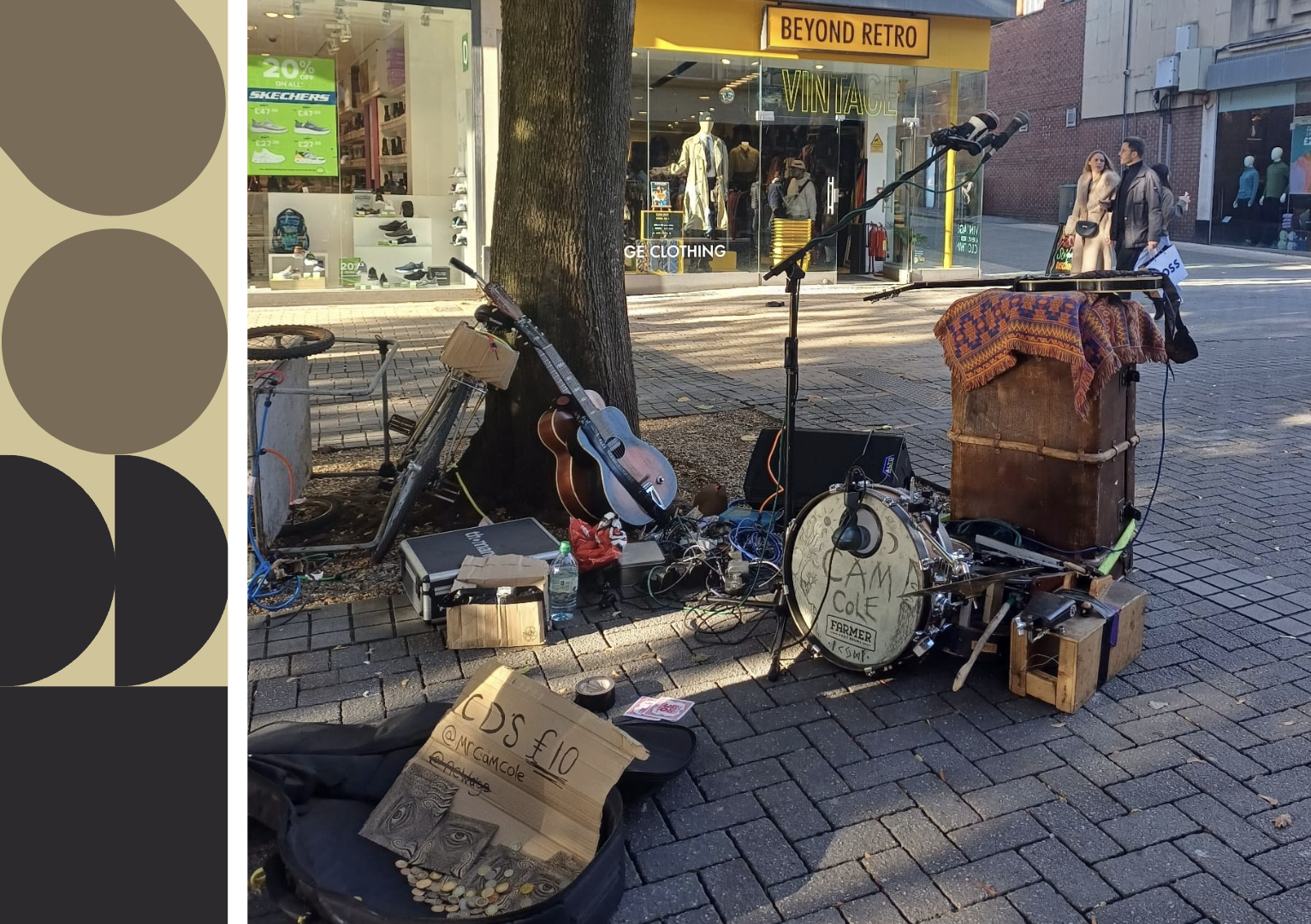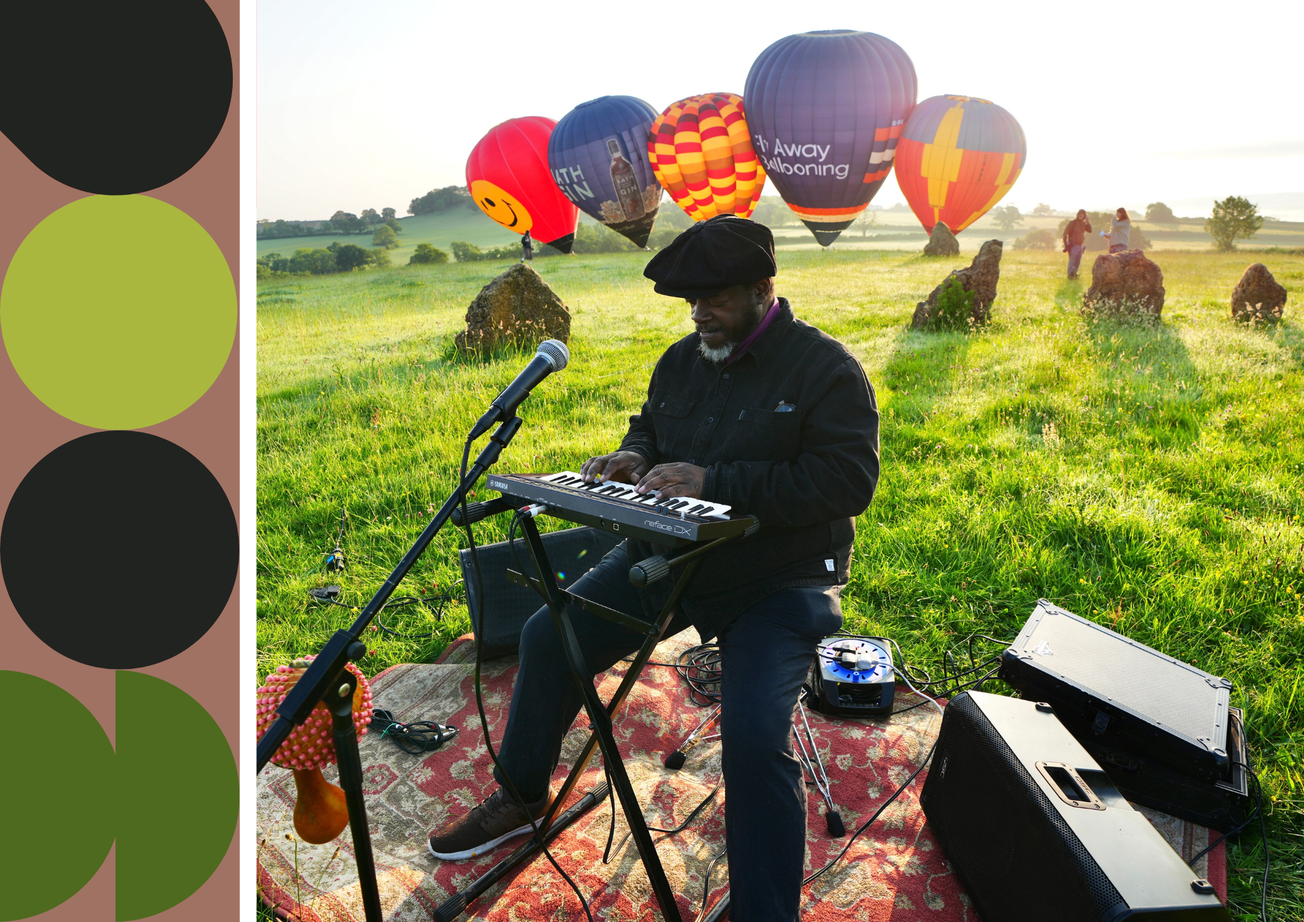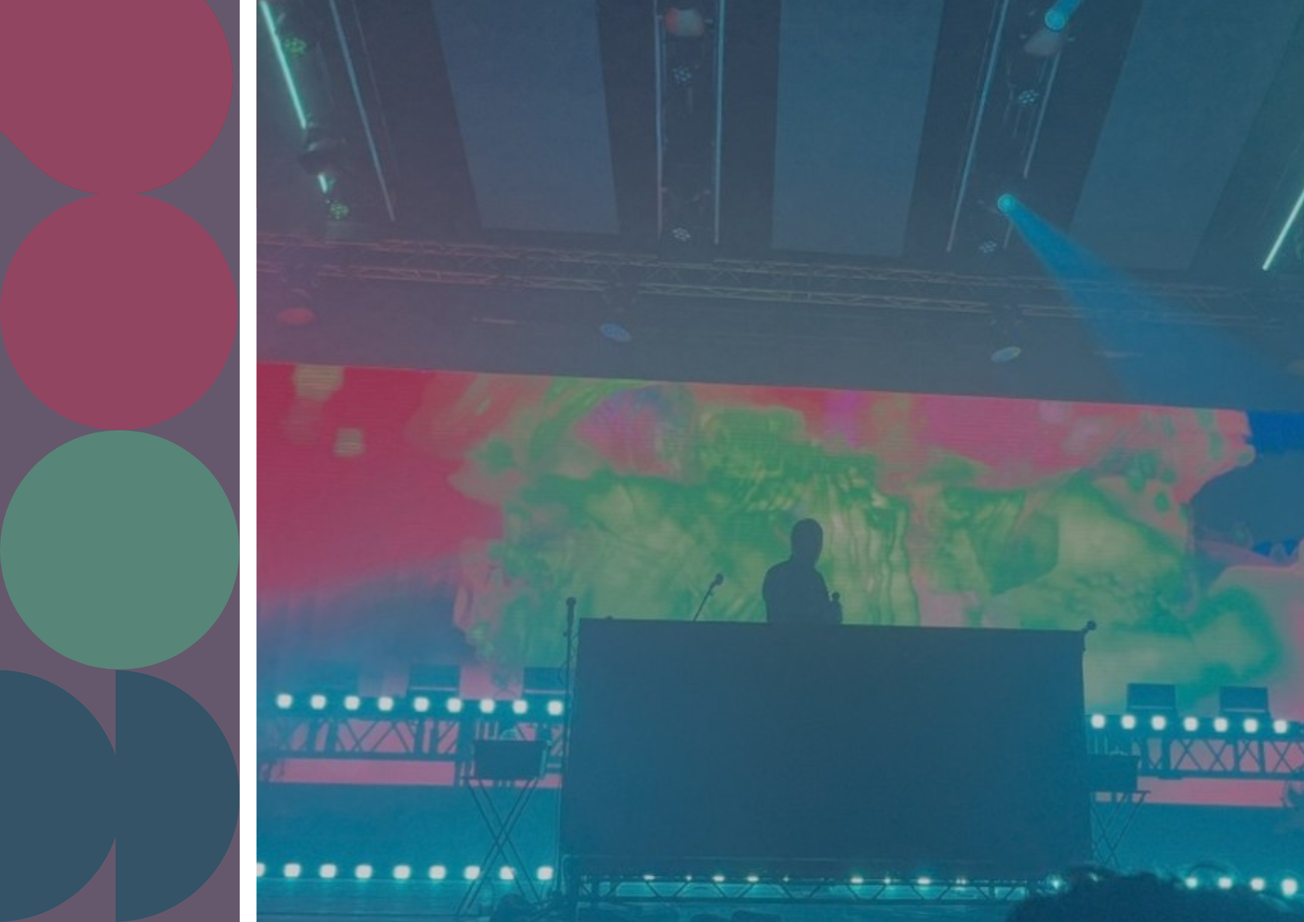By Dabrowka Nowak, Second Year English
In the bustling shopping quarter of Bristol that is Broadmead, music lovers hurry to HMV, eager to get their hands on the latest album release. However, before passing through the glass doors, they encounter an entirely different side of the music industry.
From bright-eyed, aspiring teenage singer-songwriters to preachers singing hymns with yearning passion, to even award-winning student Acapella group The Suspensions, the buskers of Bristol fill the city air with music daily, facing a multitude of struggles. They ask only for public acknowledgment and a breaking of the commercial and financial barriers of the industry.
Bristol, as a collective, widely acknowledges the busking scene, with the Bristol Buskers Facebook group having over 2000 followers and Bristol City Council recognising that the manner of performance can add ‘colour and vibrancy to our public spaces.’ However, it seems that even with this support, artists grapple with obstacles nonetheless.
Entering The Mothers' Ruin pub on a rainy Sunday, I found Eddy and the Wild Dice, a delightfully energetic blues band. They were meant to have the outside busking spot yet were brought inside by the unfortunate weather. In conversation with leading man Eddy Cottridge, I found out he has a long history of busking, ranging from Bristol to London.
In his words, ‘the freedom to set up anywhere and play is gone.’ He praises the ‘quality control’ of Mother’s Ruin, yet discusses the difficulties faced by venues ‘struggling to pay musicians’, forcing artists to turn to the public to make a livelihood, which has challenges in itself.
Trevor George, admin of the Bristol Buskers Facebook group, revealed to me that the busking scene in Bristol is not quite what it used to be, with the rapid ‘decline’ of Broadmead, generally considered the most popular busking spot in the city.
There is a lot to say about this being related to the council restrictions implemented in 2017 that made it difficult to perform as freely. Trevor George also considers people’s attitudes to play a large part, with ‘arrogant or aggressive buskers taking the best spots for longer than the Council’s suggested code.’
It is evident the Council rules guide the way to a fairer, more reasonable system; yet, on the other hand, may also hinder those in poverty who rely on busking as their only source of income, as well as those who want to ambitiously work to make a name for themselves. Even still, Bristol appears to be more lenient than, for example, London boroughs such as Camden, Westminster, and Uxbridge which all require busking licenses.
Nonetheless, in all this administrative difficulty, the joy that busking can bring is
indisputable. It takes merely a quick walk through the city centre on a Saturday to see passing groups singing to an iconic Oasis tune sung by a young guitarist in Broadmead, and a crowd admiring an expeditious steel drum player in Castle Park.
DJ sets over summer in the parks bring a youthful, energetic atmosphere to any Bristolian’s evening. The happiness the busking scene spreads both to the artist and the audience is undeniable, especially with the vast scope of genres the city specialises in. From trip-hop to reggae to classical, there is something for everyone if they wish to simply step outside.
Buskers can also become somewhat of a local celebrity. Iconic figure Rob Burn from X-Factor was famed for frequenting the harbourside surrounded by stag and hen-dos with his karaoke renditions of Frank Sinatra and The Killers amongst other popular favourites. Although frequently making local news due to divided opinions, there is no denying that Rob the Busker is an important part of Bristol’s cultural scene.
However, this level of vulnerability and exposure has a darker underbelly. It comes as no shock that when you Google ‘violence towards buskers’ countless results detailing harassment towards female singers, physical assaults and verbal abuse in England come up. Bristol, although a youthful, tolerant city, is no exception.
A certain light was thrown on this issue in 2012 with James Bowen discussing the violence experienced playing guitar while homeless in London in ‘A Streetcat named Bob’, with the cute ginger cat drawing sympathy from the public. Whilst this may have slightly helped reduce the dangerous stigma towards buskers in poverty, violence reins on in city centres.
There were 19,959 incidents of violent crime in Bristol in the 2023/2024 year, according to the JSNA Health and Wellbeing Profile. The dangers for those who spend a lot of time outdoors performing for the public are of course far higher than average.
Trevor George describes his experience of young men taking money from his collecting hat and attempting to steal equipment. However, he maintains a positive attitude and ‘tends to forget the minimal negative things as [he] does in life in general.’
These artists are due multitudes of respect for their brave exposure and deserve public support. You never know what someone has been through, and a little kindness goes a long way. Every evening out of my apartment window I can hear a gentleman with a cardboard sign asking for voluntary contributions playing Slavic songs on a crooning accordion.
One can’t help but be filled with pangs of consciousness, that whilst we enjoy the beautiful, vibrant joy that the Bristol music scene brings, this music, for many, is a lifeline, a deal of desperation. The old accordion asks in its woeful tune for a moment of our attention, some help in exchange for a second of its well-versed melody.
Truly, some loose change or even a sandwich is a small price to pay for this vulnerable expression of lived experience. We must support these talented artists as much as we can, show our appreciation with donations when we can, or even just give a smile, as bringing light to our streets every day is possibly the most underappreciated, often abused element of the music industry.
The Bristol buskers enrich our musical culture every day and help make this city the unique, creative home that it is.
Featured image: Sophie ScannellWho is your favourite busker you've seen around?







